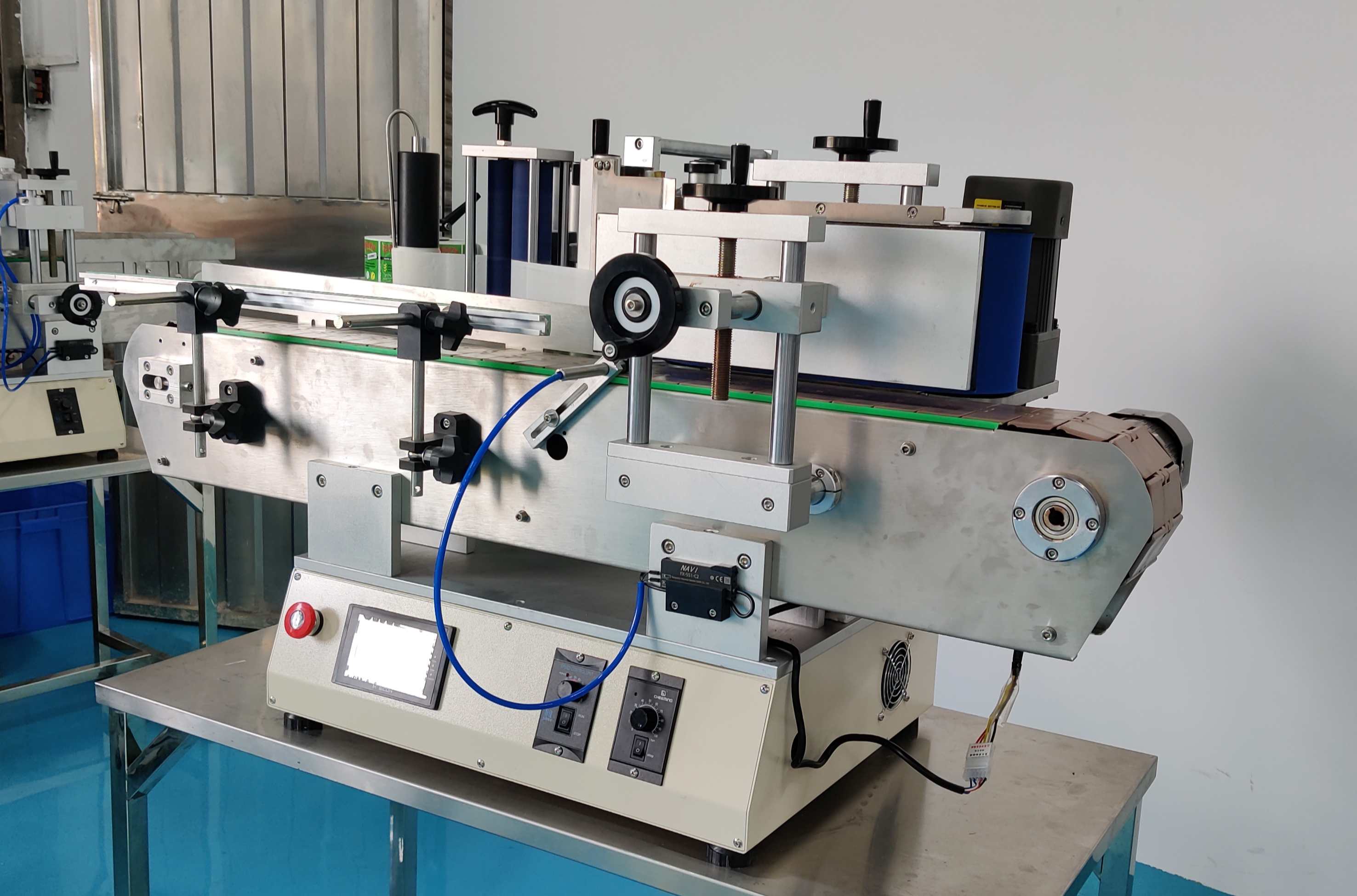Product identification plays a pivotal role in various industries, ensuring efficient and accurate labeling of goods to meet consumer needs. With technological advancements, automatic labeling machines have emerged as indispensable tools in manufacturing and packaging processes.
These machines offer a multitude of advantages, including heightened productivity, enhanced precision, and cost-effectiveness. Automatic labeling machines are proficient in applying labels to diverse product types, boasting exceptional accuracy and consistency. This elevation in efficiency serves to boost productivity while diminishing labor expenses.
These versatile machines can affix labels to containers of varying sizes, applying front, back, or wrap-around labels with exactitude. Additionally, they are an optimal choice for decorative labeling. The selection of an appropriate automatic labeling machine necessitates meticulous evaluation of production requisites and industry-specific applications, encompassing considerations such as label dimensions, shapes, speed, and accuracy.

In today's fiercely competitive market landscape, effective product identification is paramount for establishing brand authority and ensuring customer satisfaction. Product labels relay vital information about items, including nomenclature, constituents, usage directives, and safety advisories. Labels that are both precise and lucid not only aid customers in making informed purchasing decisions but also ensure adherence to regulatory standards.
Automatic labeling machines excel in terms of swiftness and throughput, empowering businesses to expediently and efficiently label products. These machines eliminate the necessity for manual labeling, thereby mitigating human error and expediting the labeling process. With the aid of these machines, manufacturers can label thousands of products within a fraction of the time required by traditional methodologies.
The precise placement of labels is pivotal for product identification and upholding brand integrity. Automatic labeling machines guarantee meticulous alignment of labels on products, thus curtailing errors and disparities. Even when grappling with irregular shapes or uneven surfaces, these machines maintain a high degree of precision, ensuring consistent labeling across the entire product spectrum.
Through the automation of labeling processes, enterprises can achieve savings across labor, time, and material expenditures. Automatic labeling machines obviate the need for manual labor, thus reducing manpower requirements and associated costs. Furthermore, these machines optimize label consumption, minimizing waste and ensuring judicious utilization of label materials.
Automatic labeling machines exhibit versatility in accommodating diverse product categories, sizes, and configurations. They can seamlessly adapt to various label formats and materials, affording businesses the flexibility to tailor label requisites as necessitated. Whether applied to bottles, cans, boxes, or jars, these machines adeptly apply labels across a plethora of products spanning different industries.
Within the domain of food and beverages, automatic labeling machines wield a pivotal role in applying labels featuring essential information such as constituents, nutritional facts, and expiration dates. These machines ensure compliance with labeling regulations while providing consumers with accurate data to facilitate informed decision-making.
Pharmaceutical products mandate precise labeling to ensure patient safety and adherence to regulatory mandates. Automatic labeling machines deftly apply labels to small vials, bottles, blister packs, and other pharmaceutical containers, incorporating dosage instructions, warnings, and batch numbers.
Cosmetics often necessitate labels that are visually appealing to captivate consumer attention. Automatic labeling machines meticulously apply labels to cosmetic containers, heightening product presentation and bolstering brand recognition. These machines guarantee label uniformity across an array of cosmetic products, encompassing bottles, tubes, and jars.
Automatic labeling machines find extensive application in logistics and distribution centers for labeling packaging and boxes. These machines streamline labeling procedures, enhance inventory management, and facilitate precise tracking and tracing of products throughout the supply chain.
Propelled by technological progress, the automatic labeling machine sector continues to evolve. Anticipated future trends encompass:
Integration with Artificial Intelligence (AI)
Automatic labeling machines are poised to harness the capabilities of AI to enhance image recognition, label detection, and intelligent error correction. AI algorithms are anticipated to aid machines in adapting to diverse product shapes and sizes, further elevating precision and efficiency.
Internet of Things (IoT) Connectivity
IoT stands to revolutionize the realm of automatic labeling machines. By integrating these machines into networks, manufacturers can gather real-time data, monitor performance, and remotely control operations. This connectivity facilitates proactive maintenance, curtails downtime, and seamlessly integrates machines into intelligent manufacturing environments.
Sustainability and Environmental Practices
As sustainability garners global prominence, automatic labeling machines may incorporate environmentally conscious practices. This could encompass the use of recyclable label materials, energy-efficient components, and measures to curtail waste generation. Such strides align with the escalating demand for ecologically responsible production processes.
Enhanced User Interfaces
Manufacturers are dedicating efforts toward devising user-friendly interfaces for automatic labeling machines. Intuitive controls, touchscreen interfaces, and visual feedback systems streamline machine operation and diminish the learning curve for operators. These interfaces contribute to heightened productivity and efficiency within workshops.
Multi-Function Labeling
Future iterations of automatic labeling machines could offer multi-functional capabilities extending beyond mere product identification. These machines might integrate supplementary functions like batch code printing, application of security features, or affixing promotional labels. By amalgamating several tasks into one machine, manufacturers can further streamline their labeling workflows.
In conclusion, automatic labeling machines are pivotal in modern industrial contexts for ensuring precise and efficient product identification. They contribute to enhanced productivity, accuracy, and cost-effectiveness across diverse industries, ranging from food and beverages to pharmaceuticals and cosmetics. As technology continues to advance, these machines are poised to incorporate AI, IoT connectivity, sustainability practices, and improved user interfaces, making them integral components of the manufacturing landscape.
Copyright 2018 ©ZHUONUO WINSKYS TECH CO.,LTD All rights reserved.